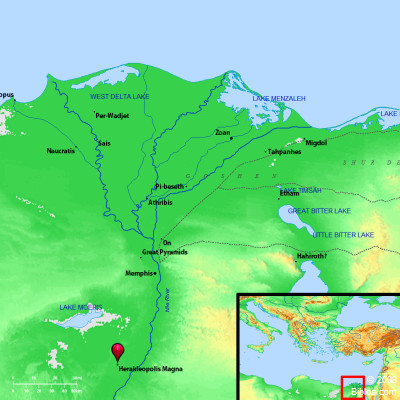Atlas  Hanes (Herakleopolis Magna) and surrounding region Maps Created using Biblemapper 3.0 Additional data from OpenBible.info Occurrences Isaiah 30:4 For their princes are at Zoan, and their ambassadors have come to Hanes.Encyclopedia HANESha'-nez (chanec): Occurs only in Isaiah 30:4. The one question of importance concerning this place is its location. It has never been certainly identified. It was probably an Egyptian city, though even that is not certain. Pharaoh, in his selfish haste to make league with the kingdom of Judah, may have sent his ambassadors far beyond the frontier. The language of Isaiah, "Their ambassadors came to Hanes," certainly seems to indicate a place in the direction of Jerusalem from Tanis. This indication is also the sum of all the evidence yet available. There is no real knowledge concerning the exact location of Hanes. Opinions on the subject are little more than clever guesses. They rest almost entirely upon etymological grounds, a very precarious foundation when not supported by historical evidence. The Septuagint has, "For there are in Tanis princes, wicked messengers." Evidently knowing no such place, they tried to translate the name. The Aramaic version gives "Tahpanhes" for Hanes, which may have been founded upon exact knowledge, as we shall see. Strong's Hebrew H2609: Chanesa place in Egypt |



